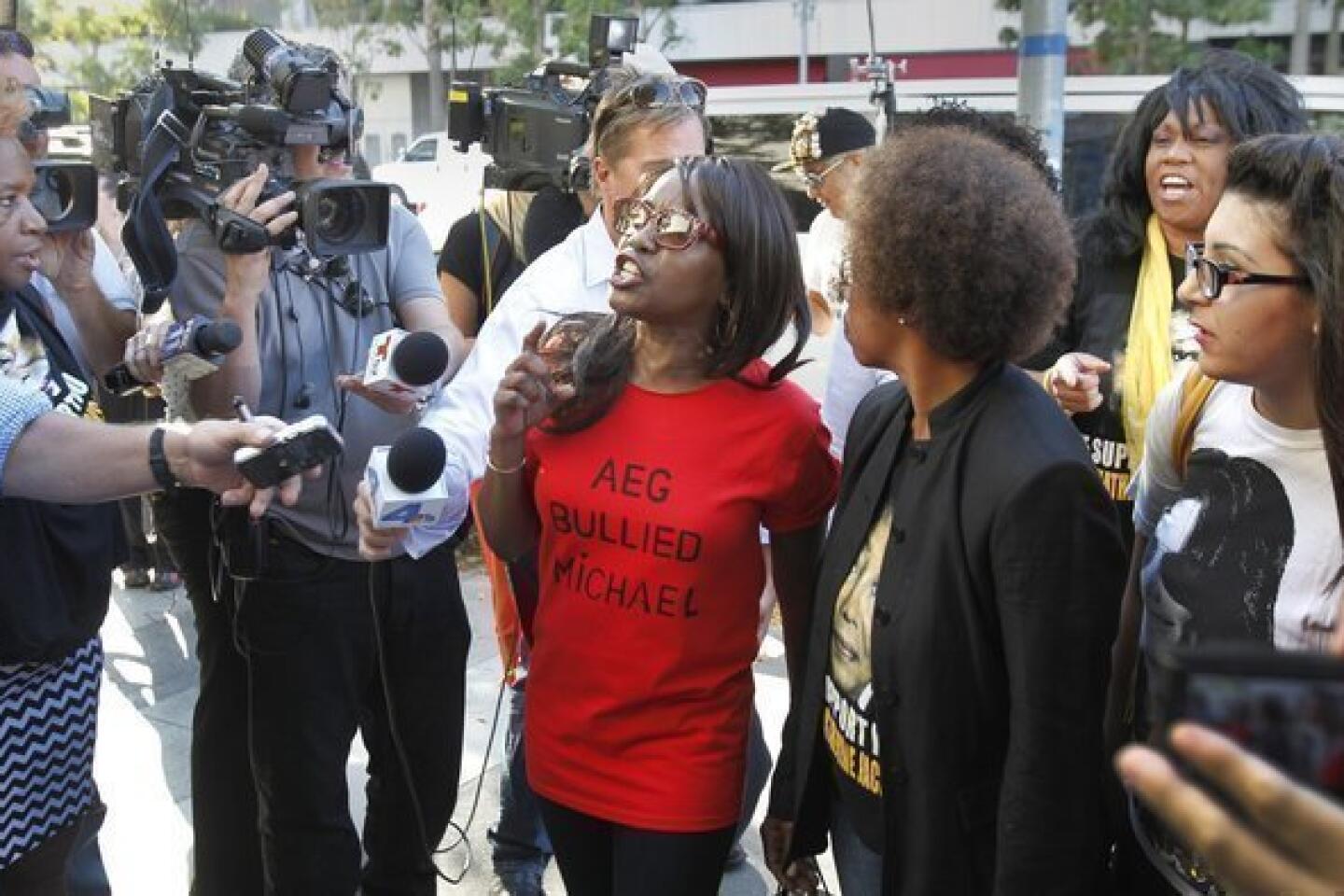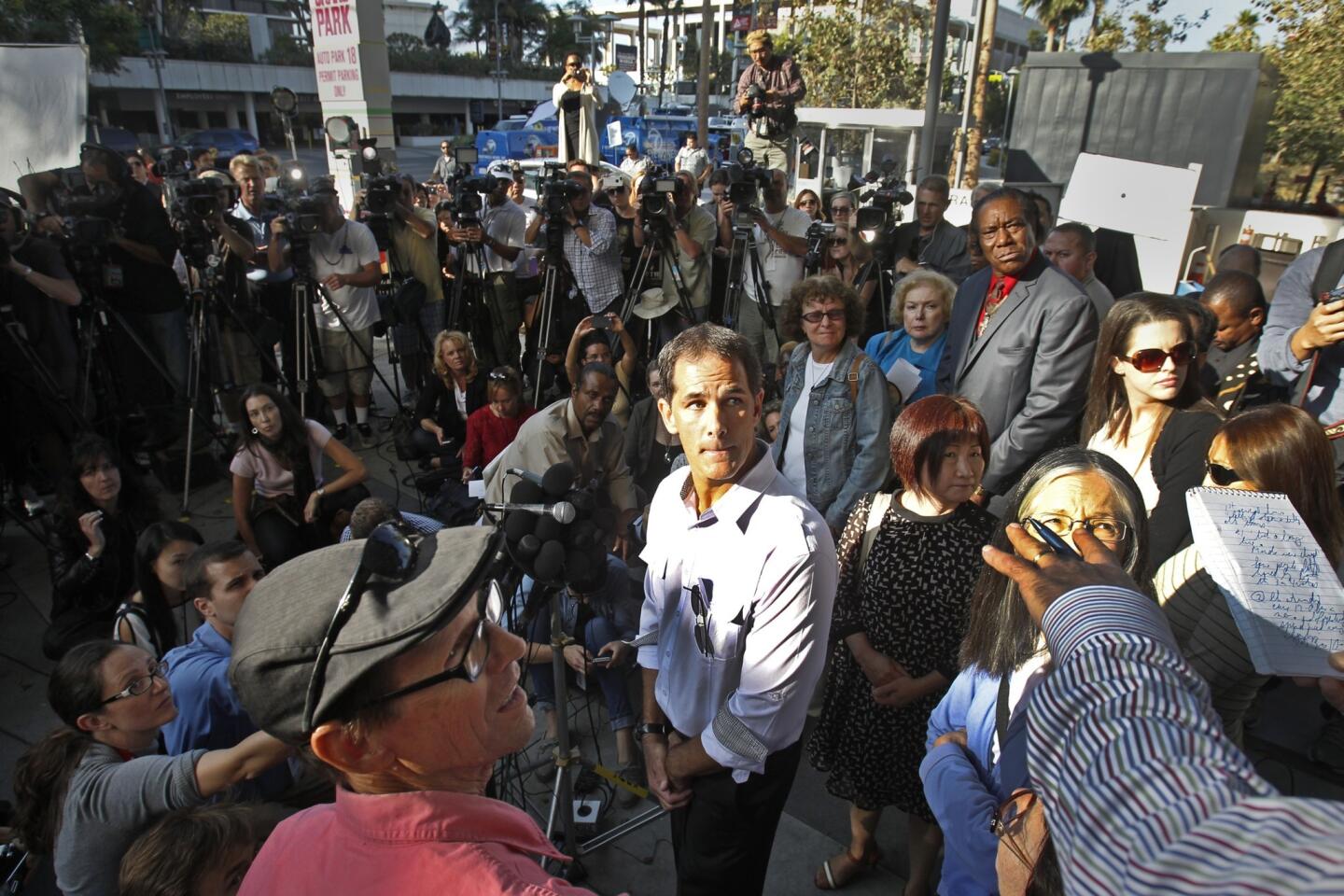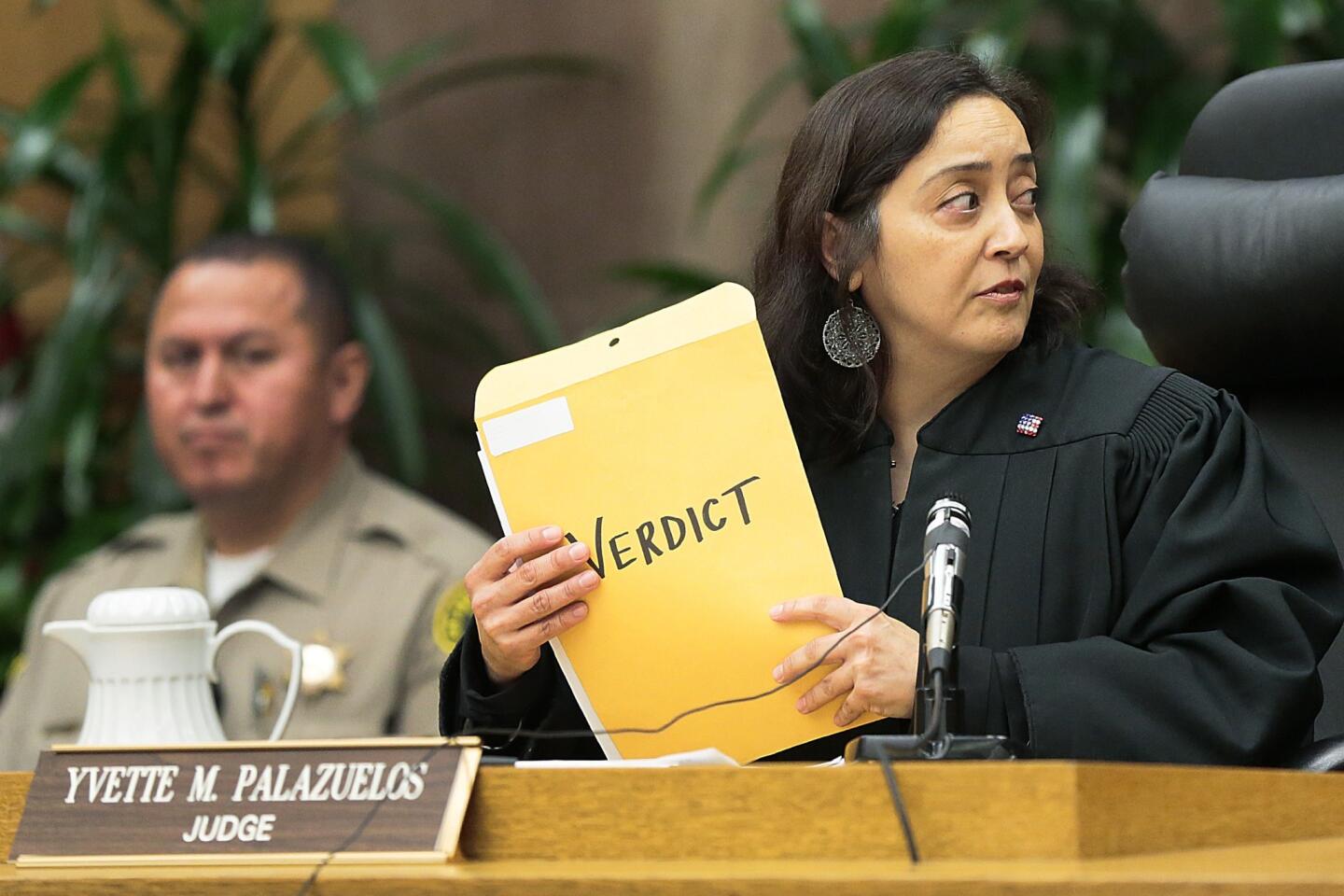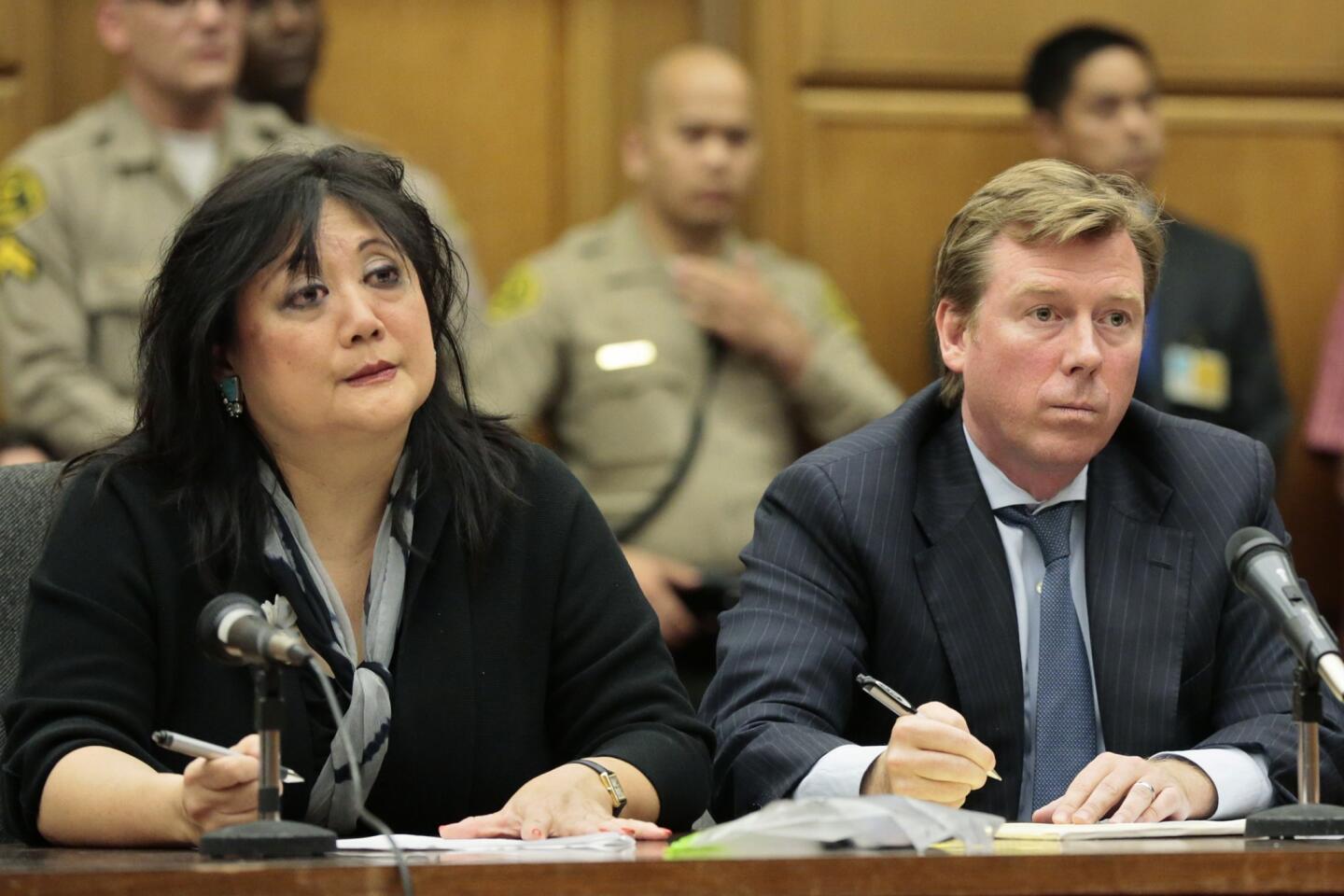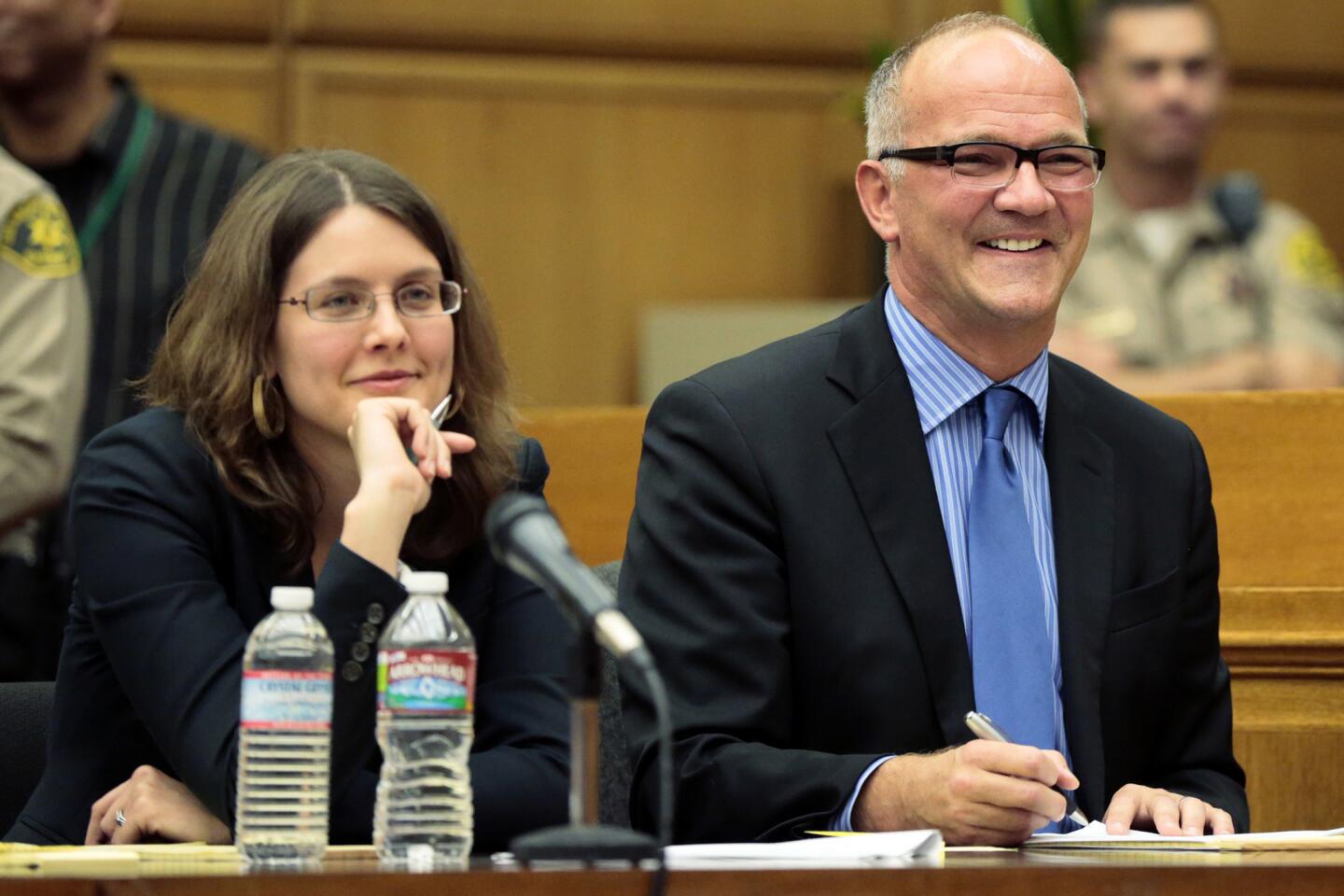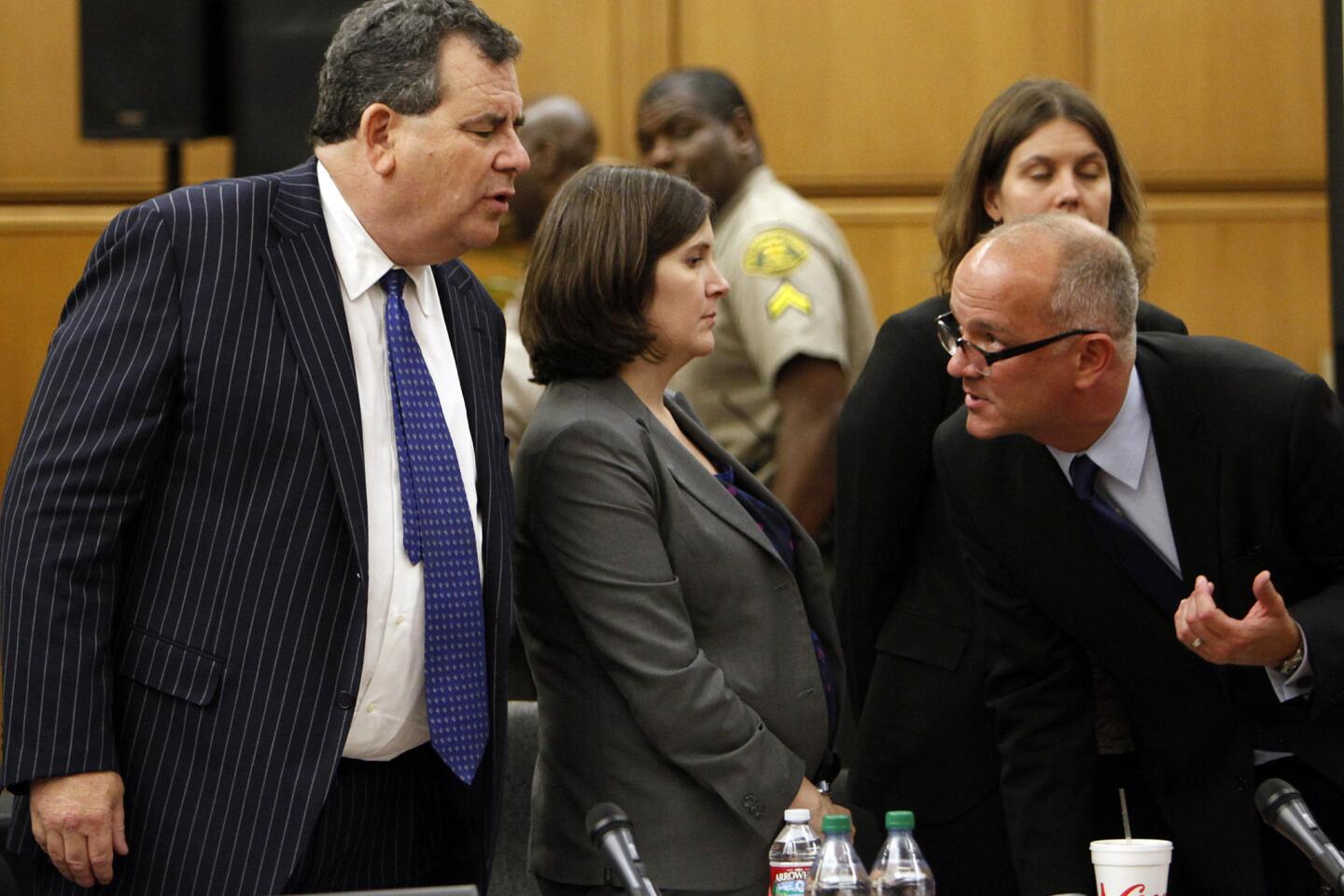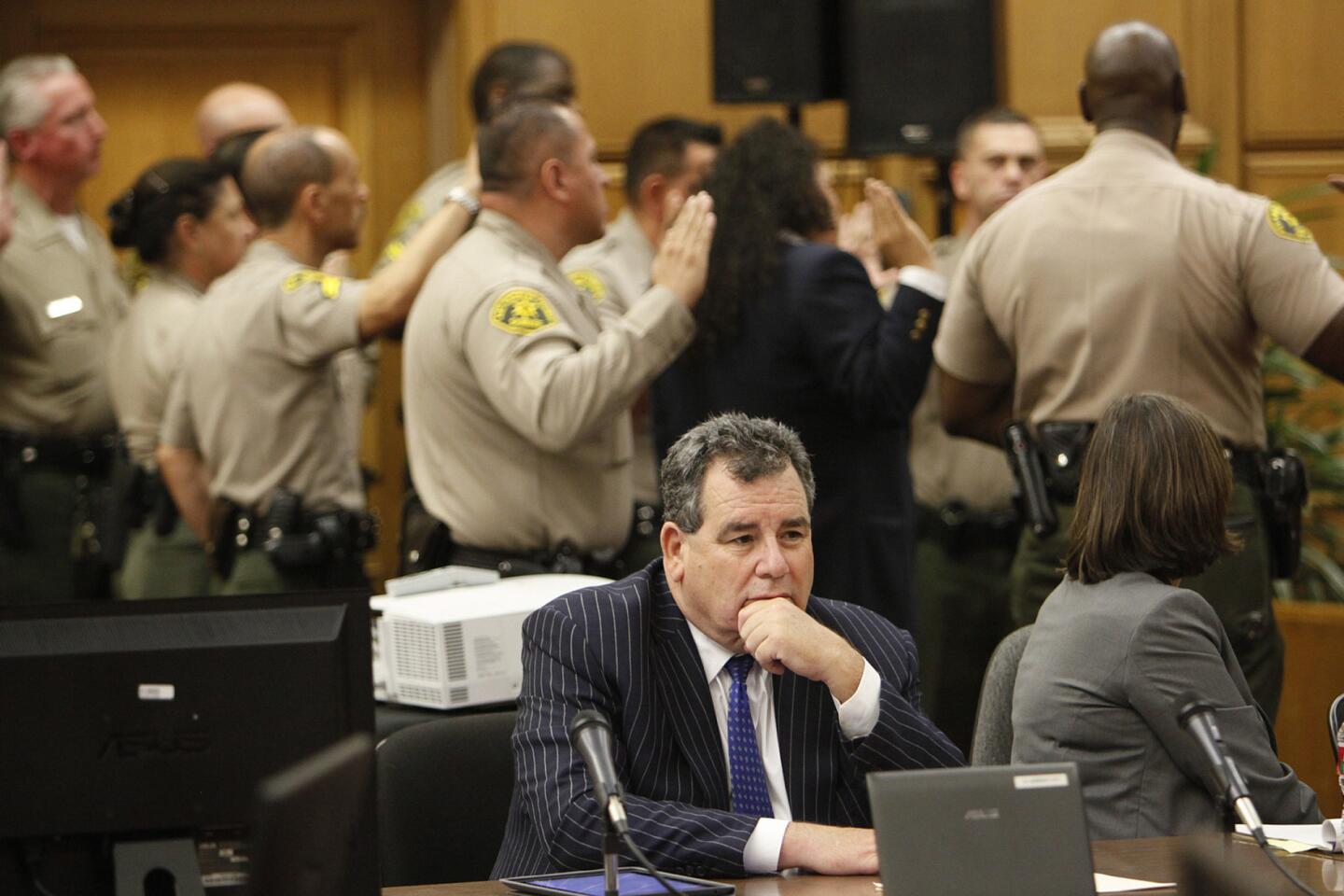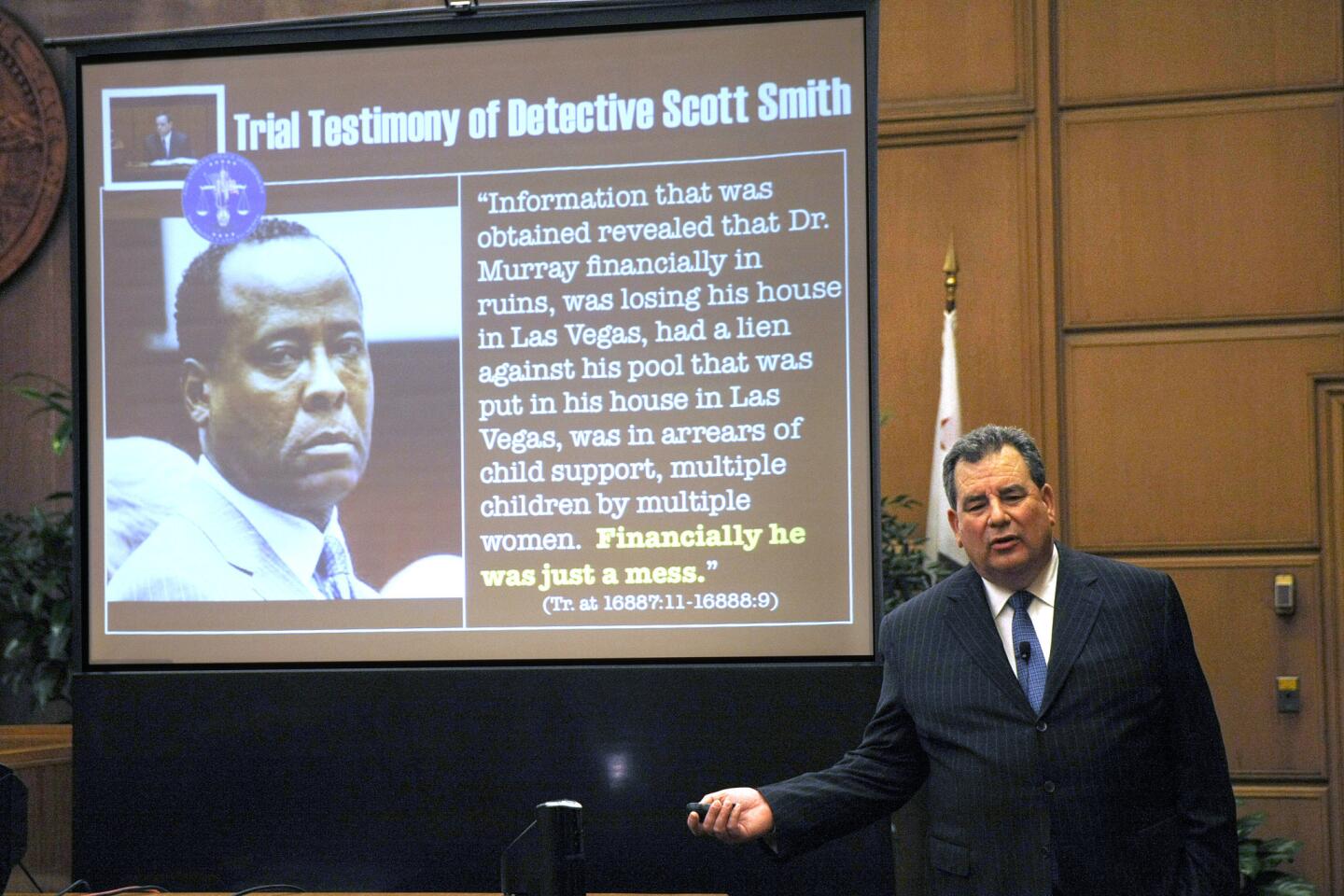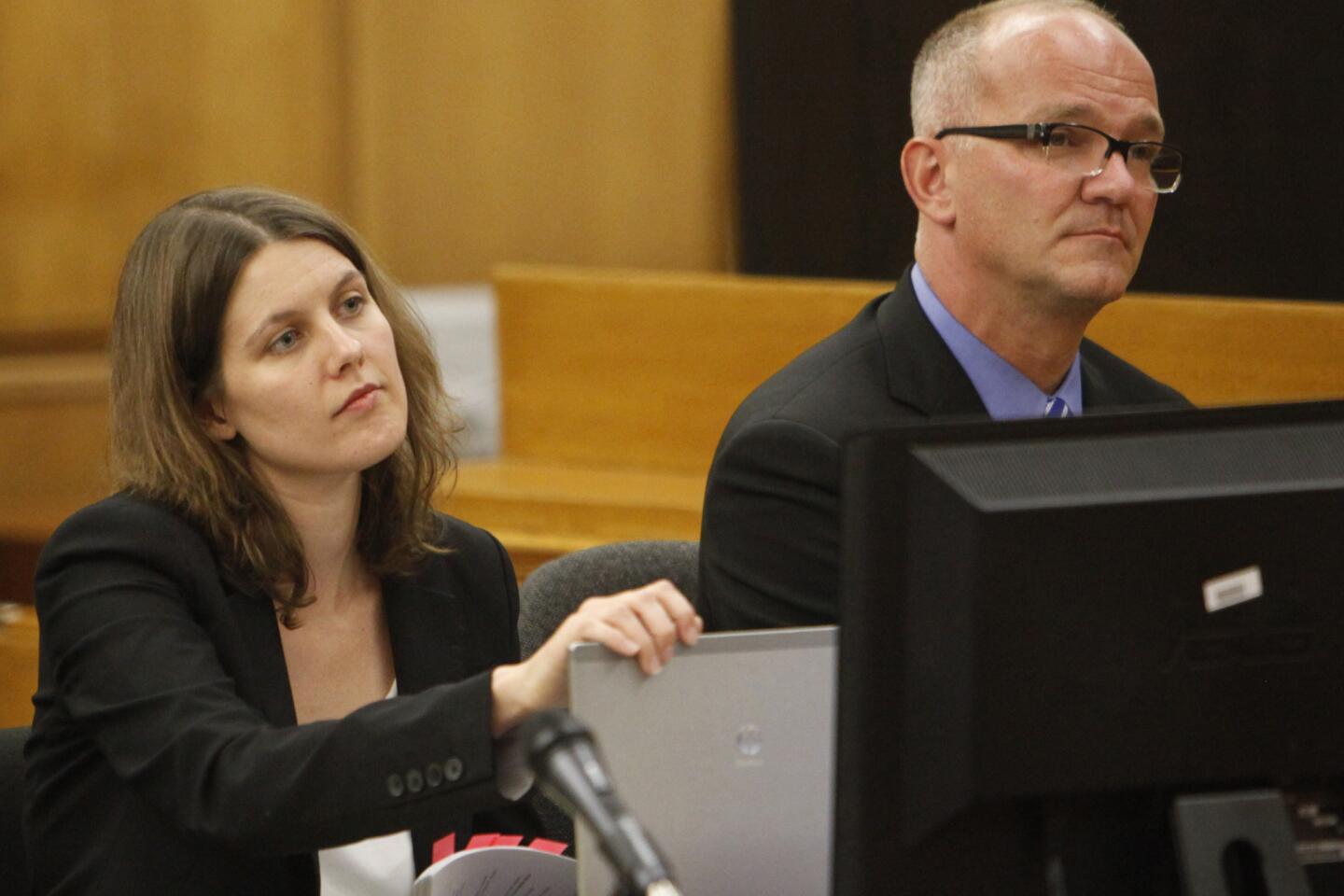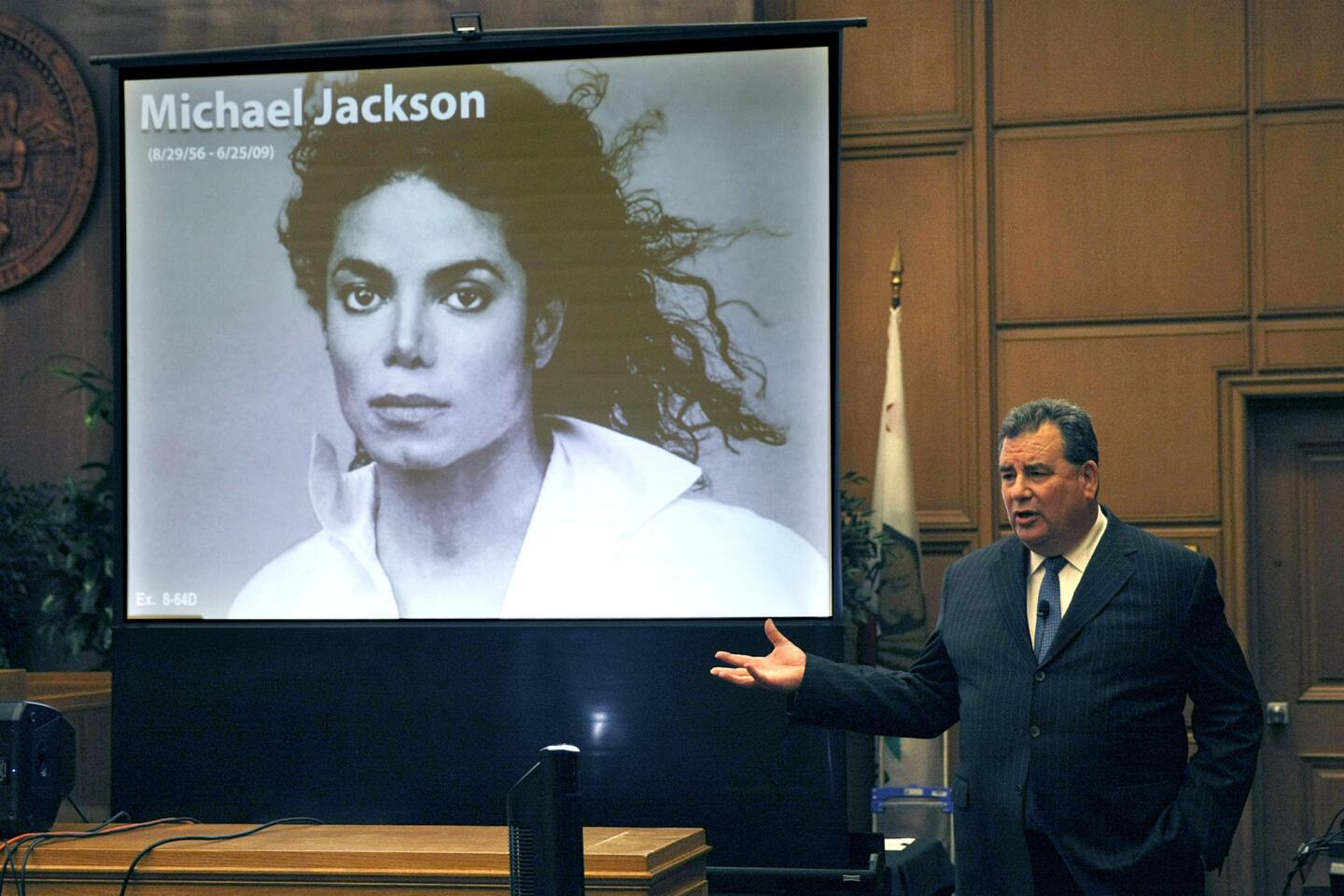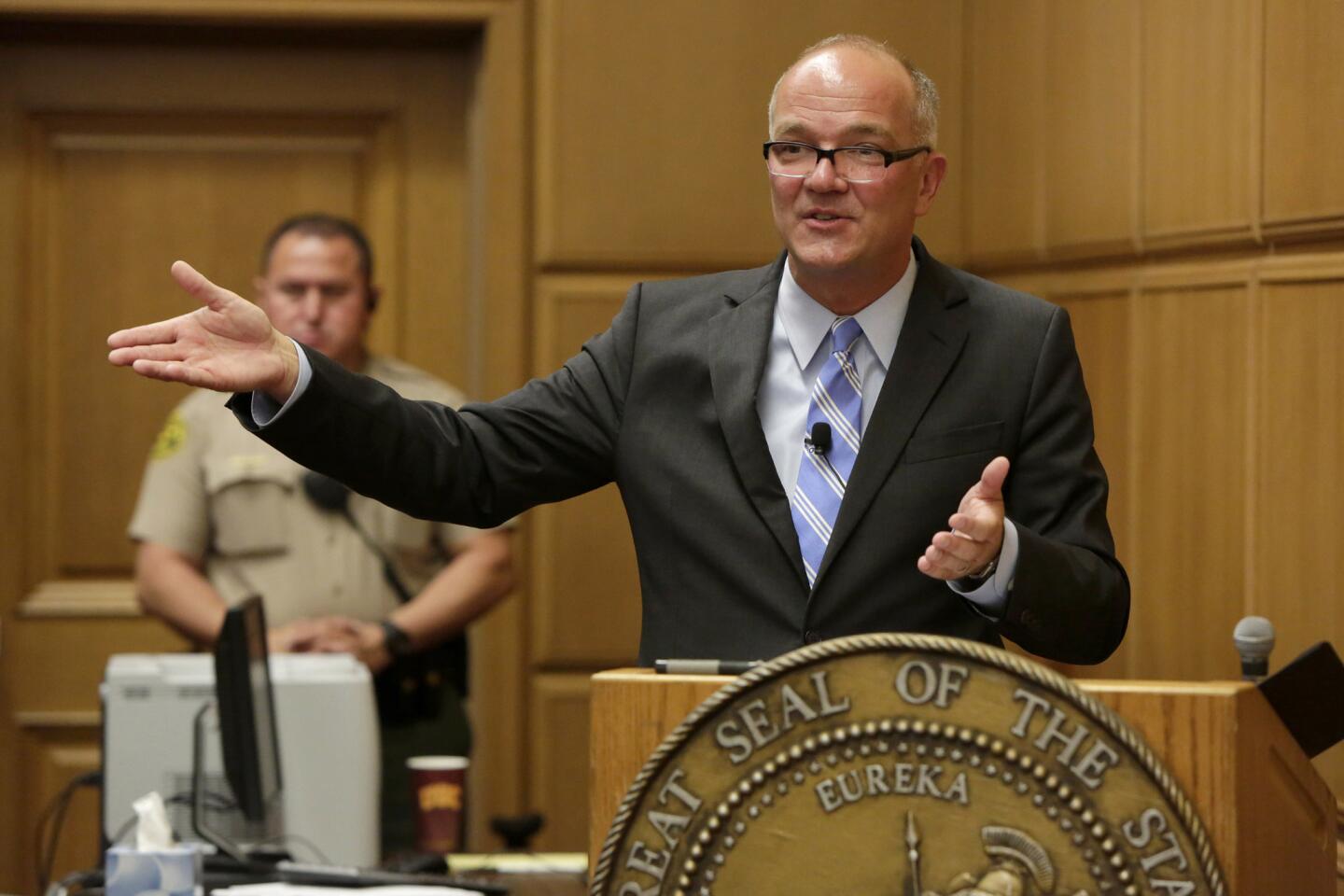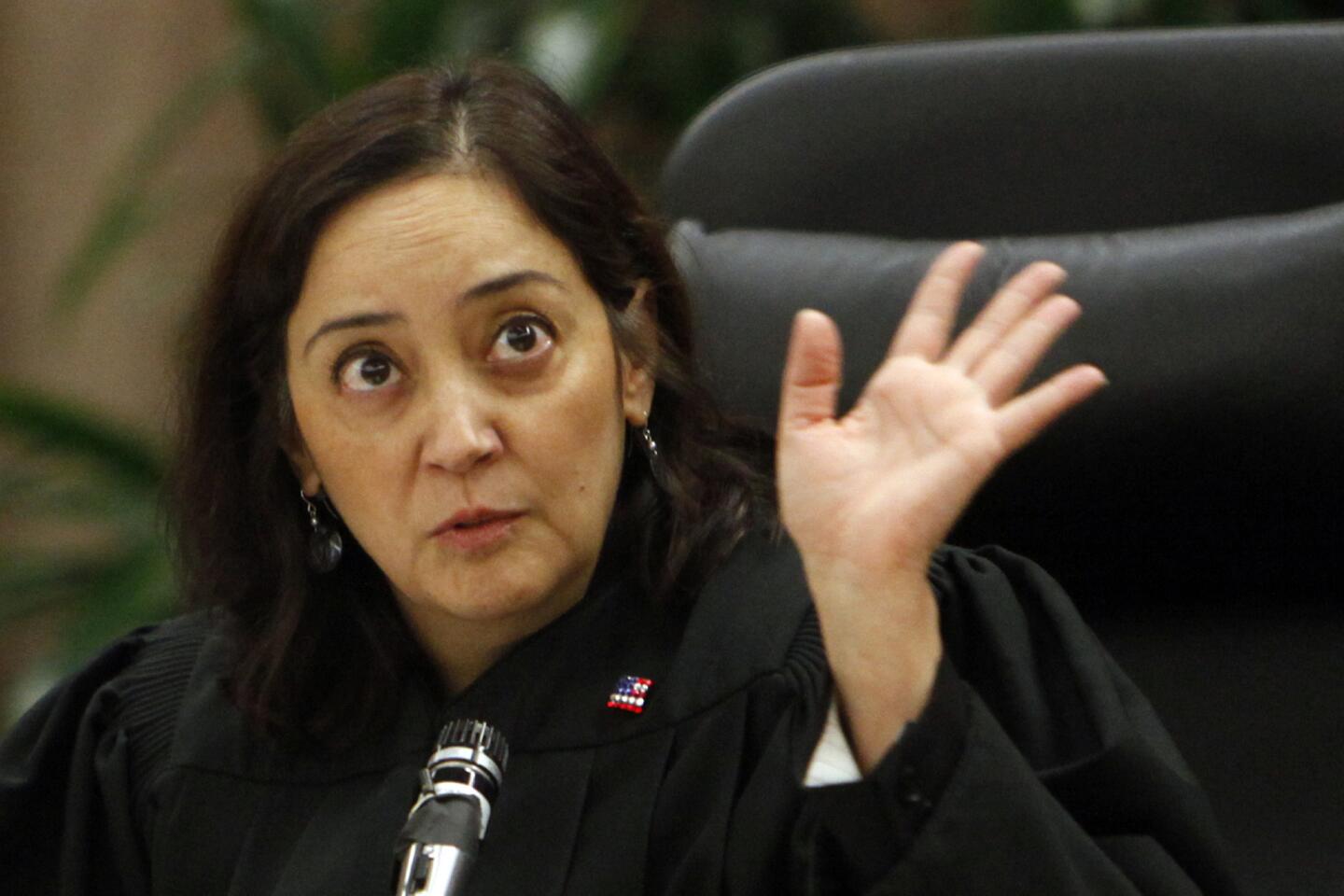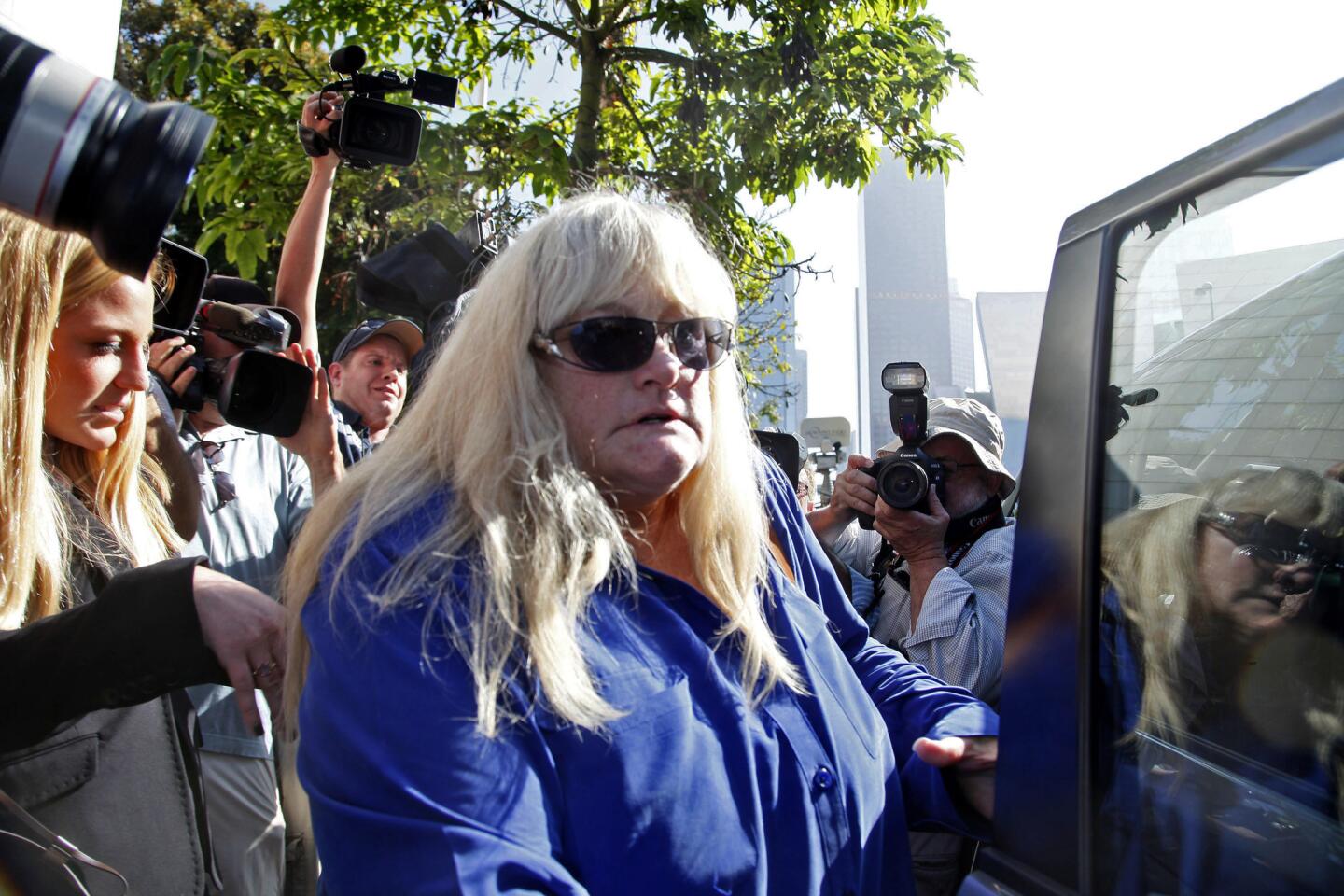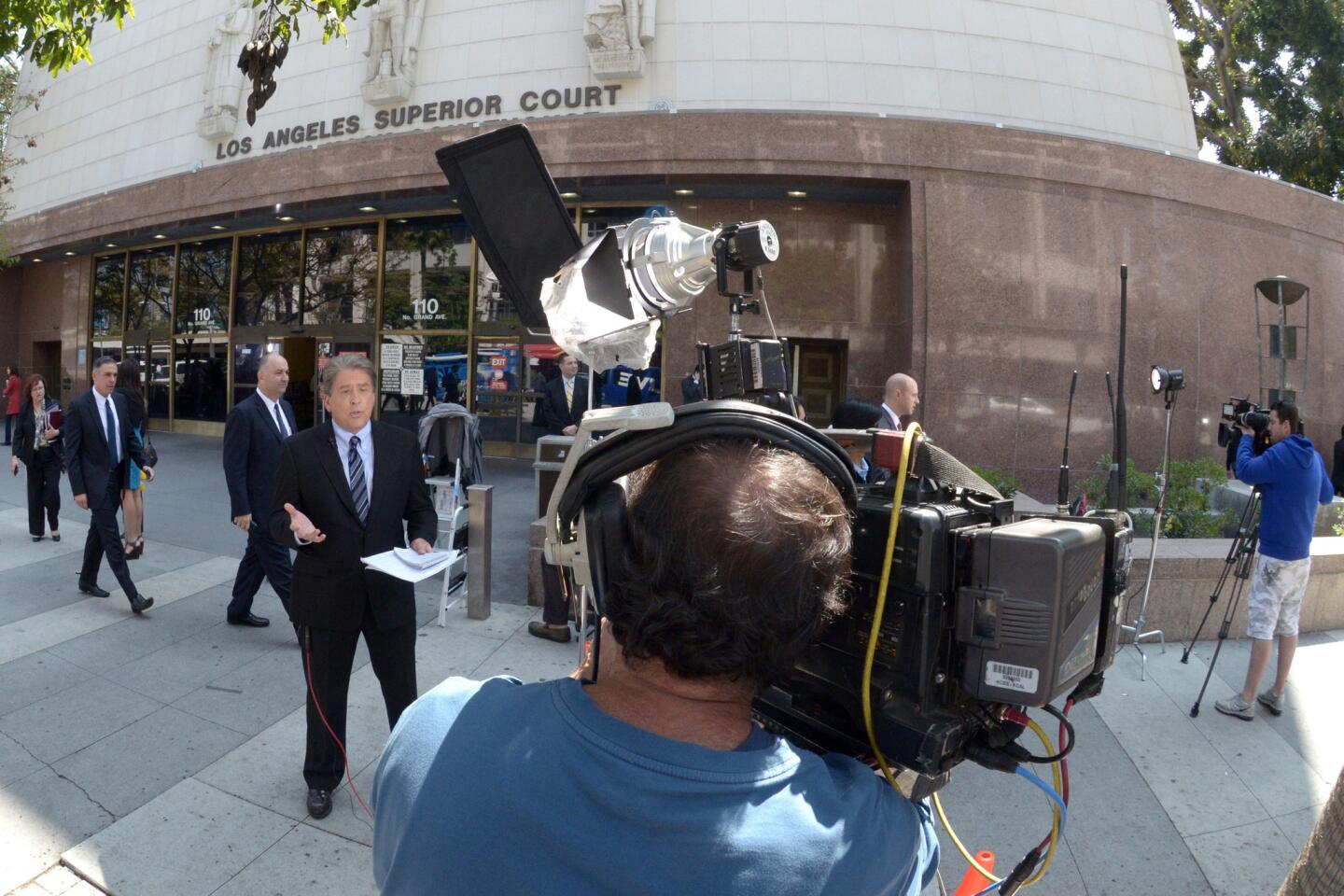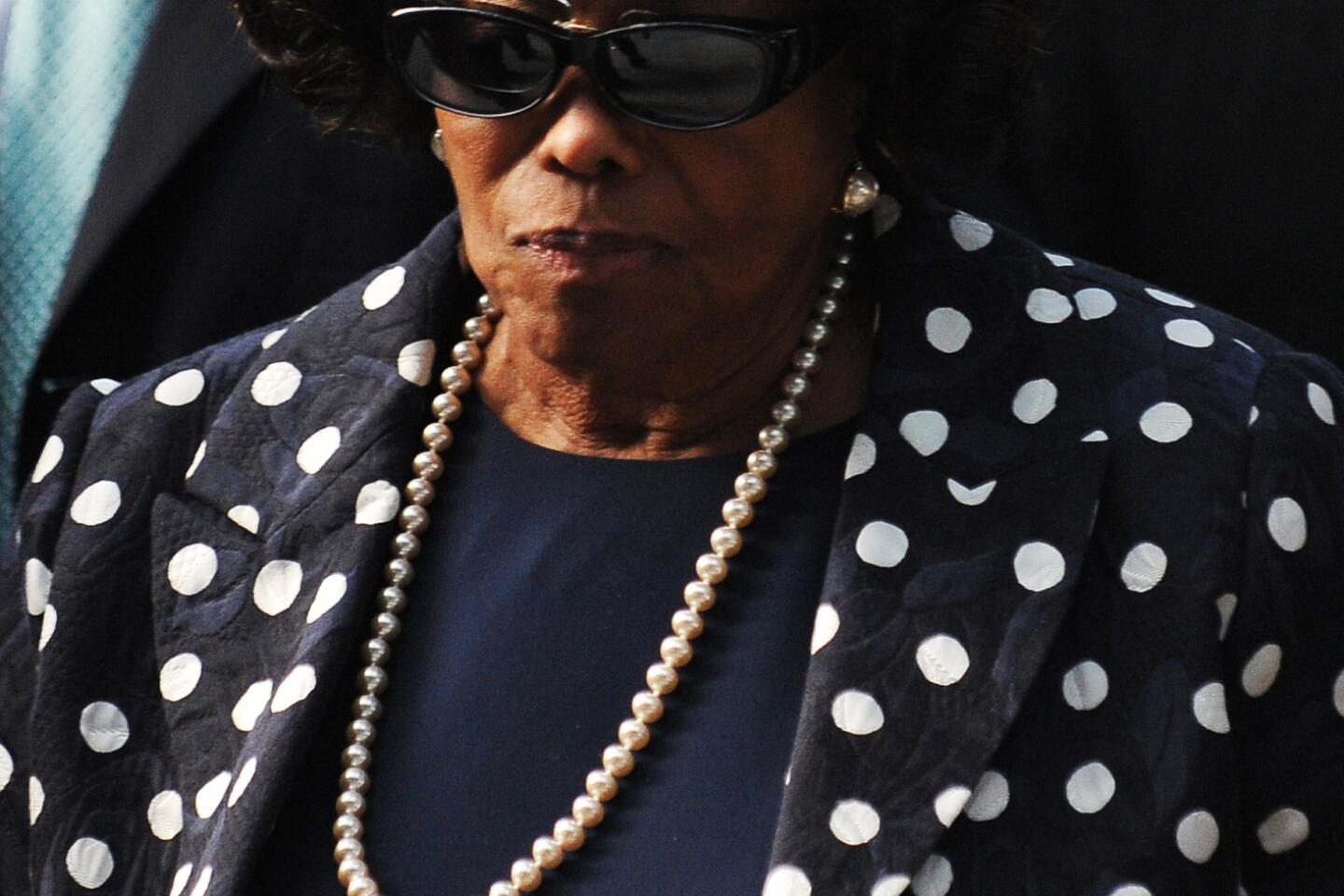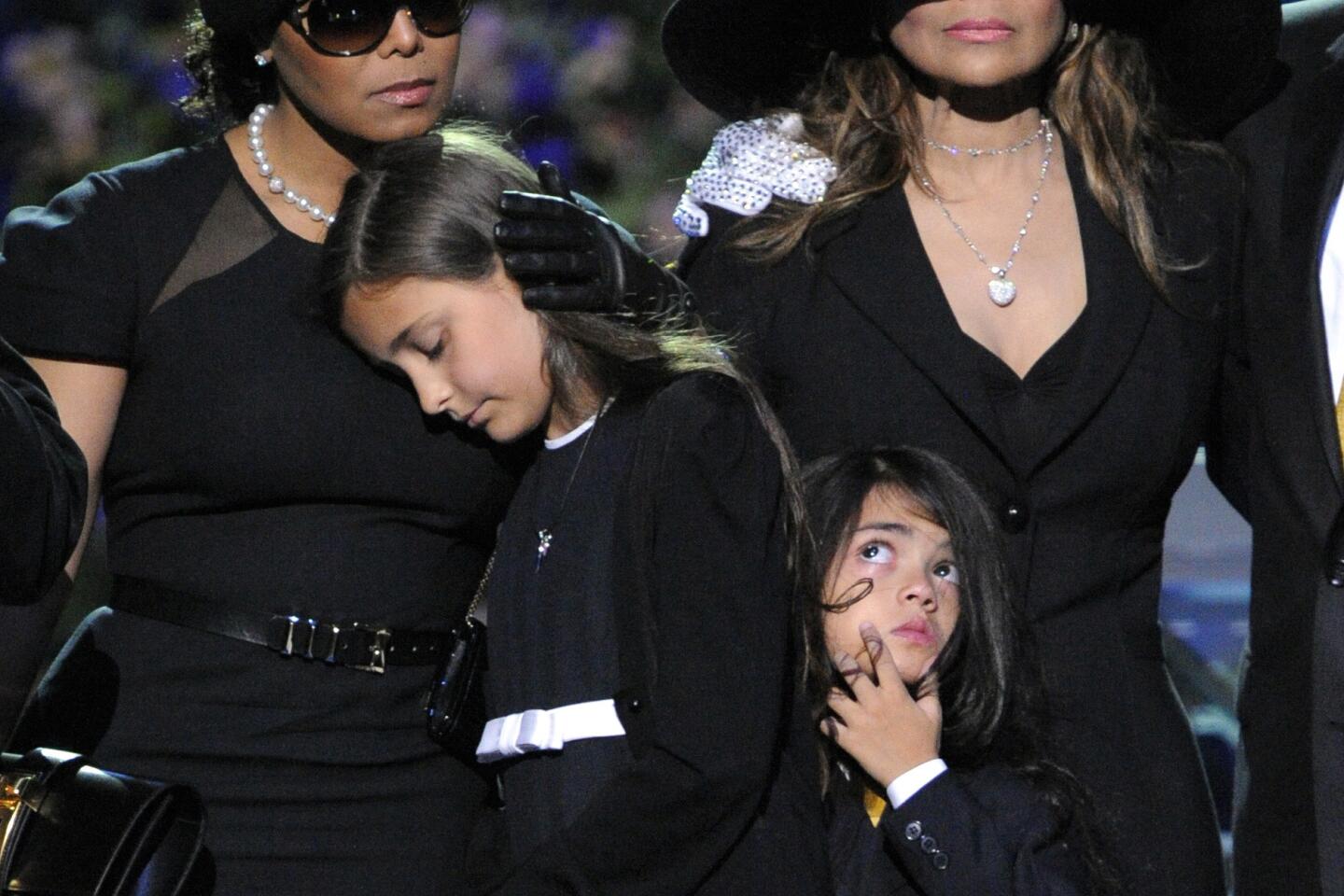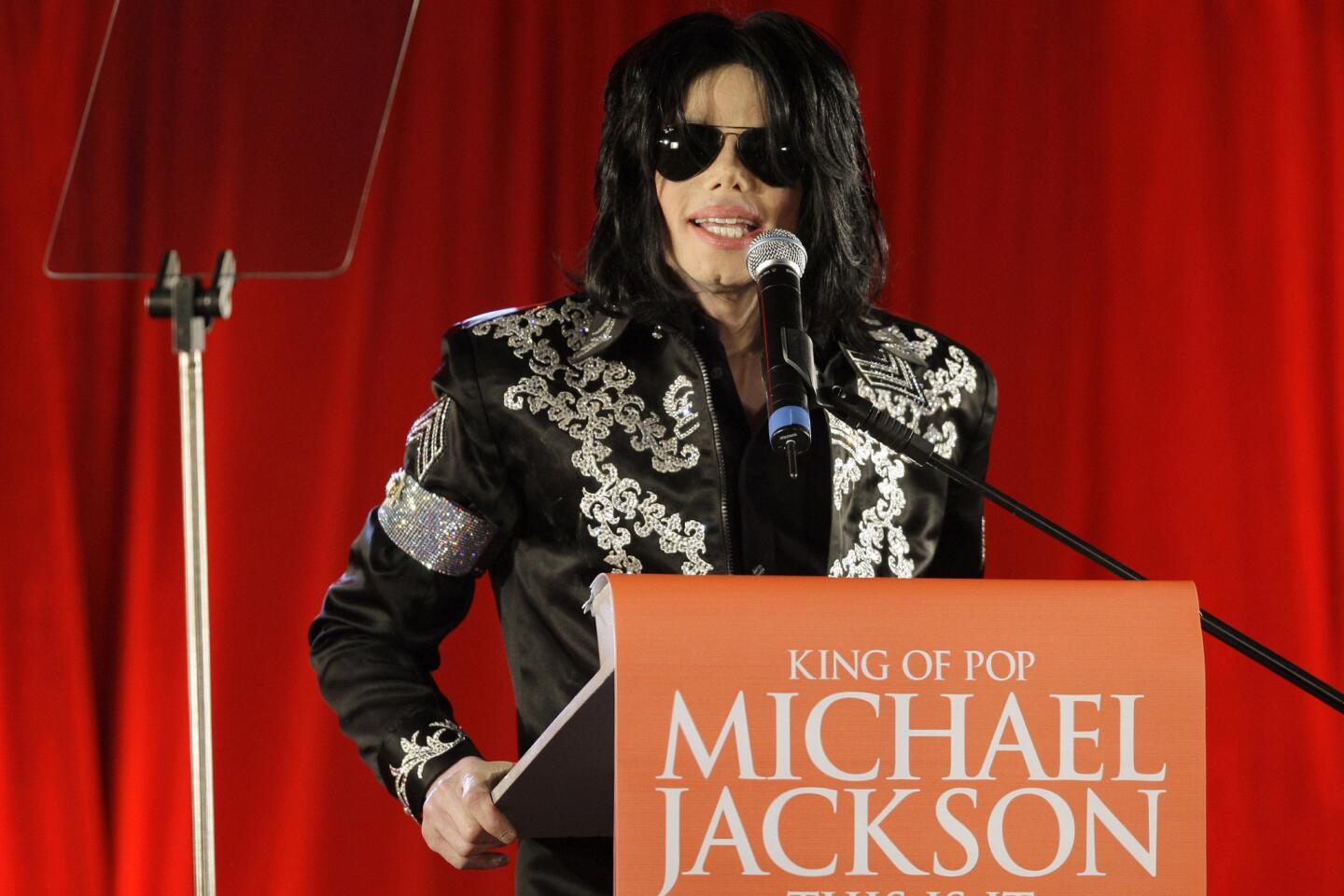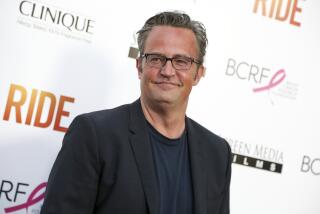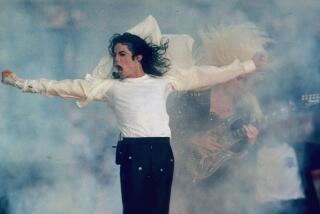Sleep-deprived Michael Jackson needed teleprompter to sing classics
- Share via
A Harvard sleep expert testified in the Michael Jackson wrongful death case Friday that the singer suffered from almost total sleep deprivation that resulted from his use of the anesthetic propofol.
Dr. Charles Czeisler, who has both an MD and a PhD, testified that propofol brings on “a drug-induced coma” that is far different from sleep. Not only does it not satisfy the body’s need for sleep, it dissipates the sleep drive, “leading to a massive sleep deficiency.”
“That is what I believe happened in the case of Mr. Jackson,” Czeisler testified.
He said that the symptoms Jackson exhibited, laid out in emails and testimony from people watching him during rehearsals for the 50 concerts scheduled for London were “consistent with what you might expect to see in someone suffering from total sleep deprivation over a chronic period of time.”
He said the emails provided more detail than those kept by scientists during their observations.
“The meticulous detail of his deterioration was both profound and sad,” Czeisler said.
Those symptoms included loss of weight, paranoia, anxiety, difficulty with balance, difficulty regulating his body temperature and asking for a teleprompter for lyrics to songs he had been singing for years.
The doctor said the fact Jackson asked for the teleprompter “was shocking and indicated to me the profound impact this sleep deprivation was having on his memory.”
Asked by Michael Koskoff, an attorney for the Jacksons, what had caused the problems, Czeisler replied, “No. I believe Mr. Jackson had a sleep disorder and it was a chronic sleep disorder.”
Jackson died June 25, 2009, of an overdose of propofol that Dr. Conrad Murray administered at the singer’s rented Holmby Hills mansion to treat his insomnia. Murray was convicted of involuntary manslaughter and is serving time in jail.
Czeisler testified that in April, May and June 2009, Murray ordered more than four gallons of propofol.
“It’s a stupendous amount,” he said.
The sleep expert testified that according to the toxicology report, the amount of propofol in Jackson’s system was what you would expect of a patient undergoing major abdominal surgery.
Czeisler said that Jackson’s insomnia was not disabling most times, but was exacerbated when he was on tour or preparing for one.
“The key issue in this case is that his insomnia, his sleep disorder was greatly exacerbated when he was on tour,” he said. “It was rather mild when he was not in tour mode or tour preparation mode. It was disabling to him when he was on tour or preparing to tour.”
He said that Murray, an internist and cardiologist, “was clearly not competent to diagnose or treat Mr. Jackson’s sleep disorder.”
The suit against AEG Live and two of its executives was brought by Jackson’s mother and three children. They say AEG, which was promoting and producing the concerts, negligently hired and supervised Murray. The entertainment giant says that Murray worked for Jackson and that any money it was supposed to pay the doctor was an advance to the singer.
ALSO:
Email from Michael Hastings before crash mentions FBI probe
Wilshire Boulevard to close Sunday for 7th CicLAvia cycling event
16-year-old gang member gets 90 years to life for killing 1-year-old
Twitter: @gottliebjeff
More to Read
Sign up for Essential California
The most important California stories and recommendations in your inbox every morning.
You may occasionally receive promotional content from the Los Angeles Times.
